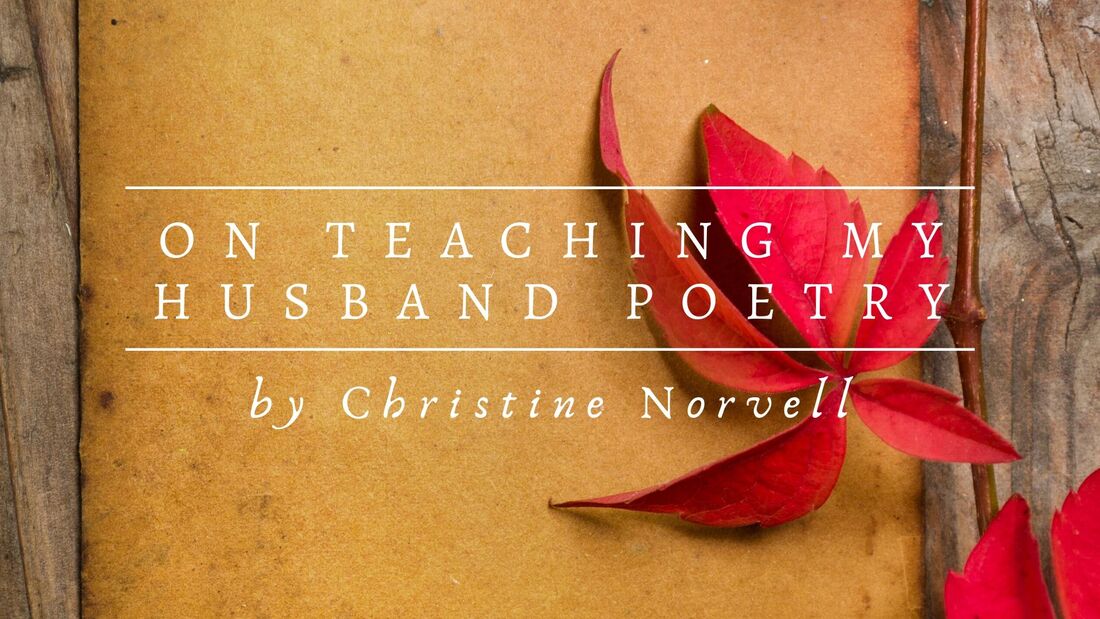|
No, there's no such thing as husband poetry.
I mean my husband asked me to teach him more about poetry. My husband felt there were decided holes in his education, but I thought surely somewhere in junior high or high school a dedicated teacher must have taught him some famous verse. He swears he remembers nothing of the sort. Thus, three months ago, my husband picked up a volume of Emily Brontë poetry and determined to understand what he read. He was already a decided Brontë sisters' admirer, so likability wasn't an issue. What did become an issue was rhyme scheme and syllable structure. So what to do? As he read poetry before bed each evening, he began to ask me questions like Why does this line have eight syllables and this one has ten? I know, I know. Nerd alert. How many married couples talk like this before falling asleep? Anyway, I began by asking him not only to count syllables in every line, but to also determine if there was a pattern. How many lines are in the overall poem? Did you say 14? So what type of poem is that? What was Bronte imitating? Pretty soon I realized we needed to start at the beginning. All the intelligent Rush lyrics of his youth bred a natural appreciation for poetry and the lyrical art, but that didn't mean he understood the required elements of the poet's work. This is what we've learned so far in the poetry journey: STEP ONE: Read poetry you like, poetry you're drawn to. Each person has their own taste of course. Bronte did that for him as did Frost and Seamus Heaney. STEP TWO: Break apart the poem skeleton. This is tricky because if you spend too much time identifying parts you can also remove the pleasure of reading for the beauty of the thing. At the same time without the knowledge of parts it's hard to appreciate the whole. Think of the human skeleton. Knowing the parts of the body that frame it and allow it to stand and move increases our appreciation of its overall appearance. STEP THREE: Find a teaching text that's written at your level. Perhaps the most difficult creature to find, an instructional book is a necessary thing unless you already have an English teacher spouse at your side. From homeschooling curricula to college-level texts, there are too many choices. I've read quite a few that make poetry more difficult and even more that make it too simple. The trick is to find the one that fits you. As an adult learner, my husband didn't want a middle school beginner though he was willing. Instead we went entirely old school. Why not learn from two distinguished Yale professors? MY TOP RECOMMENDATIONS Understanding Poetry by Cleanth Brooks and Robert Penn Warren. It's no longer in print but is a valuable text if you find one. You can learn so much from reading just two chapters on narrative and descriptive poems. Brooks and Warren include plenty of examples and commentary on how the poem works and what it means. It is most helpful to learn from their wealth of experience and to learn from the types of questions they ask about each poem. The Harp and Laurel Wreath by Laura Berquist. Berquist has compiled a thorough representation for grades 1-12. Poems are listed for memorization, analysis, and writing practice. She includes questions following each poem that are perfect for class discussion or independent learning. The appendices include most every literary term tied to poetry study in addition to plentiful examples on meter, rhyme, and verse. *originally published November 29, 2017
0 Comments
Your comment will be posted after it is approved.
Leave a Reply. |


 RSS Feed
RSS Feed